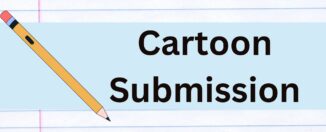Why Studying Abroad Is Great for Your Future Career
by Carolina VonKampen
If I’m being honest, classroom time was one of the least valuable experiences I had while studying abroad.
I know, I know; that’s a terrible thing to say, but it’s true: It’s the experiences that take you outside the classroom that make studying abroad … well, studying abroad. You can take classes anywhere in the world, but it’s going out and exploring a new place that makes it such a rewarding experience.
But that also means that the experiences you have outside the classroom while you’re studying abroad are hard to quantify. It’s easy to show how your internship or classes line up with specific skills employers are looking for, such as proofreading, implementing a nutrition plan or entering data into a spreadsheet. Figuring out how to include study abroad on your resume is harder because the skills you develop while studying abroad are soft skills.
Luckily for you, soft skills are essential in today’s economy. Seventy-five percent of interviewers will cut an interview short if you don’t display the right soft skills. That’s because employers want to know that you know how to adapt to different situations, make good decisions and communicate with others. In fact, the top three soft skills that employers look at for entry-level positions are all skills you can improve by studying abroad: adaptability, oral communication and problem-solving. While you can certainly learn these soft skills during college, studying abroad means you’ll be thrown headfirst into situations each day that require you to develop these skills—and develop them quickly.
Studying abroad isn’t an option for every student, of course. But if you’re considering it and aren’t sure it’s worth your time and money, think about how the experience will positively impact your future career. Here’s how studying abroad will make you a well-rounded and more appealing employee:
Language
Obviously, if you learn a foreign language while studying abroad, it’s great for your career. In fact, employers increasingly want bilingual employees. Knowing how to communicate with people who speak another language means that you’re a valuable asset to a company that has branches in other countries or has clients or partners who also speak another language. Learning a foreign language also gives you opportunities to translate, write and edit in that language, or just read and understand ads or phone calls.
If you learn a little bit of a foreign language but aren’t fluent, you’ve still got an advantage over other candidates who don’t know a foreign language at all.
Broadened perspectives
Even if you don’t learn a language, you’re still experiencing a totally new culture and lifestyle. Living in a foreign country exposes you to new perspectives and forces you to adapt to new food, new customs, new manners and more. Unless you sit in your room watching Netflix all day, you’re going to widen your perspective just by getting out, walking around and existing in a different place.
Employers want to hire people who can understand different perspectives and bring their own unique experiences to their company. Studying abroad and experiencing a variety of perspectives and cultures gives you a leg up on other job candidates.
Adaptability
Studying abroad means being pushed out of your comfort zone day in and day out. Whether it’s maneuvering the language barrier, eating dinner at 9 p.m. or navigating an unfamiliar bus route in a language you can’t read, you’re always figuring out how to adapt to your situation. Being flexible and knowing how to keep calm when the situation changes will serve you well in whatever career you pursue.
Independence
When you study abroad, you have the opportunity to break away from the group and go exploring on your own. (But be safe!) That can mean walking back to your homestay or apartment from class, going out of your way to explore a section of the city you haven’t visited before or even planning a trip to a different city or country on your own. I took a day trip by myself to Ravenna, Italy, from Rome; it was terrifying at first, but I was so much more confident after my solo trip.
Learning how to work independently means your boss won’t have to hold your hand when you start your internship or job. You’ll have enough confidence to take a stab at it on your own and know when to ask for help. Heading out into the unknown alone gives you confidence, which makes you a better person—and a better intern or employee.
Teamwork
While you learn independence studying abroad, you usually also learn teamwork. Chances are you’ll have to work with a group of fellow students, whether it’s in a formal classroom setting or traveling on the weekend. Believe it or not, those moments when you’re trying to figure out which bus you need to take to get home are helping you develop communication skills and learn how to work in a group in real-life situations.
Problem-solving
When you’re walking around in an unfamiliar country surrounded by people speaking a language you don’t know, you’re constantly fighting to survive in a potentially hostile environment. You have to solve a million little problems every day, like: How to say that flavor of gelato you want. How to use the metro to get to a restaurant you want to try. How to deal with a random guy in the park who is insistently offering you a flower and doesn’t speak English. Figuring out how to solve both big and small problems is a skill that will help you immensely as you search for a job and begin your career.
Studying abroad is great for your future career. If you’re interested in studying abroad, you can contact Julie Johnston Hermann or stop into the Global Opportunities Center, located west of the Music Center on 200 Faculty Lane.
Carolina VonKampen is a former managing editor of The Sower. She now works as an editor and writes about books and her career on her blog. If you’d like to ask her for career advice, please contact her here or send her a message on Twitter.




